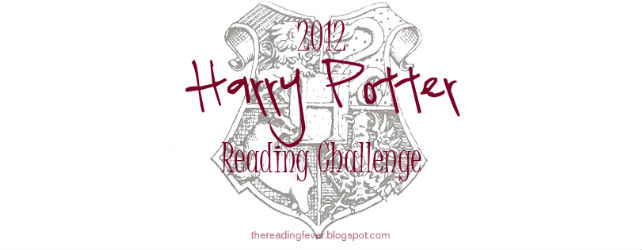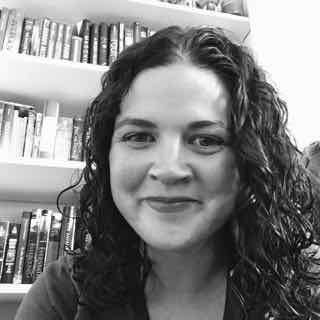This month for the Harry Potter Reading Challenge from The Reading Fever, it’s all about the Goblet of Fire by J. K. Rowling! Here’s my discussion post based on what I remember from reading it a few years ago. Gosh, these questions are hard!
- Do you have a favorite scene or line in Goblet? “Really Hagrid, if you are holding out for universal popularity, I’m afraid you will be in this cabin for a very long time.” – Albus Dumbledore. I think all my favorite quotes come from Dumbledore :D
- Harry Potter and the Goblet of Fire opens in Tom Riddle, Sr.’s parents’ home, unlike the previous three books which opened in the Dursleys’ home. This chapter is most unusual in the Harry Potter canon, in that it is not told from Harry’s viewpoint. How does the change of setting for the beginning of this book affect the tone of the book? Why do you think Rowling departed from the expected setting for the beginning? Now that I think about it, I think she is subconsciously setting us up for the similarities and differences between Harry and Tom Riddle. We get to learn Tom Riddle’s back story and find out that he wasn’t always evil and that he comes from a broken home like Harry did. It’s actually a fascinating look at where evil can come from.
- At the World Cup, mask-wearing wizards torment the muggles: “A crowd of wizards, tightly packed and moving together with wands pointing straight upward, was marching slowly across the field. Harry squinted at them….They didn’t seem to have faces….Then he realized that their heads were hooded and their faces masked”. Compare this moment of torment to other times when groups of people have worn hoods and masks to cover their identities. What does the masking of a face tell us about the nature of evil? I think it shows that evil likes to think that it’s good. The fact that evil people often conceal their identity says to me that they care a lot about what people think and they don’t want people to know who they are so they can continue with their persona of a good person. They don’t care about being good inside and out, they just want the appearance of good and that’s where good and bad people differ. A good person will do the right thing regardless of whether it’s popular and they won’t try to hide themselves. Harry demonstrates that a lot through the series.
- How does young Crouch manage to trick everyone into thinking he is the real Moody? The first thing that comes to mind is that he’s constantly talking about having “constant vigilance.” He’s shifting the focus from himself. Plus, there’s all that polyjuice potion and the fact that Mad-Eye was already weird…
- After Harry hangs around with the mermaid people to make sure all the hostages are rescued, he is awarded points for his “moral fiber.” Do you agree with this prize? How much moral fiber does Harry show? I think it shows that Harry cared more about people than winning. I admire him for that. I don’t know if the competition needed to award him points for it though…doesn’t really make sense unless you factor in the plot to get him to win so Voldemort could do his creepy potion in the graveyard.
- When Harry faces death from Voldemort, he refuses to cower before him and refuses to answer his questions. At one point, Voldemort tries to get Harry to bend to his will by answering a question. Instead of succumbing to the Imperio demand, Harry’s will takes over: “I will not, said a stronger voice, in the back of his head, I won’t answer….” Then when Voldemort moves to kill him, Harry “knew one thing only, and it was beyond fear or reason: He was not going to die kneeling at Voldemort’s feet…he was going to die upright like his father, and he was going to die trying to defend himself, even if no defense was possible… .” Did Harry have this much will power and courage in the first book? What significant events helped him develop the courage he now has? I think getting older, learning about his parents and facing a big honkin’ snake had something to do with him gaining more courage.
- A lot of elements that come into play in later books are introduced in Goblet. Can you think of some examples? Voldemort gets a body and his minions come back. Voldemort using Harry’s blood becomes VERY important in the last book. Harry starts to discover the connection between his mind and Voldemorts’.
- Harry tells Sirius and Dumbledore what happened in the graveyard. When Harry told of Wormtail piercing his arm with the dagger, … Sirius let out a vehement exclamation and Dumbledore stood up so quickly that Harry started. Dumbledore walked around the desk and told Harry to stretch out his arm. Harry showed them both the place where his robes were torn and the cut beneath them. “He said my blood would make him stronger than if he’d used someone else’s,” Harry told Dumbledore. “He said the protection my – my mother left in me – he’d have it too. And he was right – he could touch me without hurting himself, he touched my face.” For a fleeting instant, Harry thought he saw a gleam of something like triumph in Dumbledore’s eyes. But next second, Harry was sure he had imagined it, for when Dumbledore had returned to his seat behind the desk, he looked as old and weary as Harry had ever seen him. So what’s up with that “gleam of triumph” in Dumbledore’s eyes? I think Dumbledore has an idea that Harry’s protective enchantment will help keep him alive since it now is existing in Voldemort. But when I first read it, I thought Dumbledore had a gleam of triumph in his eye for Voldemort winning or something…
- In the hospital wing after Harry’s ordeal, this exchange takes place: “Severus,” said Dumbledore, turning to Snape, “you know what I must ask you to do. If you are ready…if you are prepared…” “I am,” said Snape. He looked slightly paler than usual, and his cold, black eyes glittered strangely. “Then good luck,” said Dumbledore, and he watched, with a trace of apprehension on his face, as Snape swept wordlessly after Sirius. Where did Snape go? What was Dumbledore asking him to do? Snape goes to be with Voldemort and the Death Eaters. Dumbledore is invoking “Operation Double Agent.”
- After the ordeal Harry has been through in the graveyard, Professor McGonagall wants to take Harry to the hospital wing. Dumbledore stops her, saying “He will stay, Minerva, because he needs to understand. Understanding is the first step to acceptance, and only with acceptance can there be recovery. He needs to know who has put him through the ordeal he has suffered tonight, and why.” What do you think is the significance of this? Is Dumbledore right? I think Dumbledore is right. Harry was probably more emotionally traumatized than anything. I think it’s significant because it shows how easily physical wounds heal, but emotional ones can fester for a long time and sometimes never heal at all if you let them.
- Later on, Dumbledore says to Fudge, “You place too much importance, and always have done, on the so-called purity of blood! You fail to recognize that it matters not what someone is born, but what they grow to be!” Who are some of the people Dumbledore might be thinking of when he says this? Voldemort, Harry and maybe even Hermione or any muggle born wizard.
- Would Harry have succeeded at the tasks he faced in The Goblet of Fire without outside assistance? What does this reveal about Harry’s character? No, I don’t think he would have. I think it reminds us how young and vulnerable Harry is and how much he still has to learn.
- In The Goblet of Fire, we learn that when Voldemort killed Harry’s parents, Harry survived the attack due to his mother’s sacrifice. Voldemort explains that “His mother died in the attempt to save him—and unwittingly provided him with a protection I admit I had not foreseen….I could not touch the boy.” As a result of surviving that attack Harry is labeled a great wizard, but has Harry truly earned that title? To what extent would you say that Harry is not so much “great” as lucky? In all that Harry does, how much is he acting of his own free will, and how much is he simply living out what from his birth has been his destiny? I think Harry earns the title “great” by the end of the series, but at this point I think he’s lucky and his mom was the truly great wizard for her sacrifice. What a question. How can you pull apart free will and destiny? Dumbledore points out that destiny is largely based on our choices and they make all the difference. Harry could walk away from his “destiny” but he won’t because that’s not who he is.
- The last chapter of book four is titled “The Beginning.” Why would the last chapter carry this title? What is beginning? What has ended? I think the real war is beginning and that the easy part has ended. You get this feeling of doom that it’s just going to get harder for Harry.









 My name is Jessica. I love to read Young Adult and classic literature. I’ve been a book blogger for six years and I haven’t gotten tired of it yet. I’m a very curious reader. Writing about all the questions and thoughts I had while reading a book is the best hobby ever.
My name is Jessica. I love to read Young Adult and classic literature. I’ve been a book blogger for six years and I haven’t gotten tired of it yet. I’m a very curious reader. Writing about all the questions and thoughts I had while reading a book is the best hobby ever.
Leave a Reply